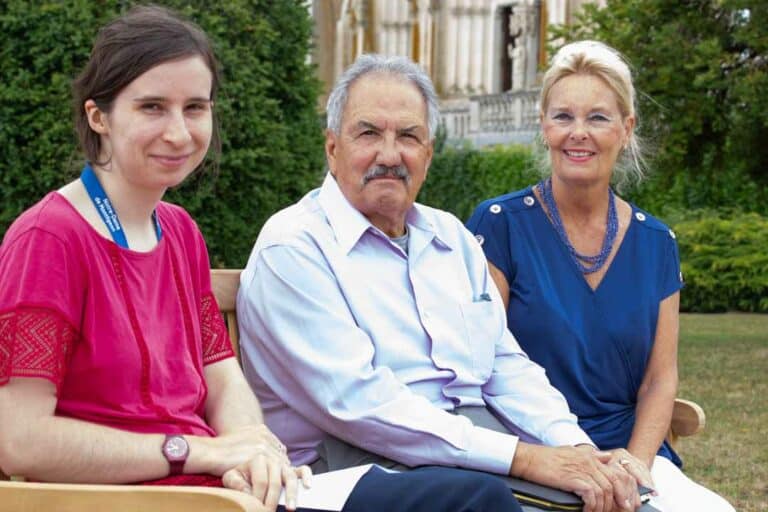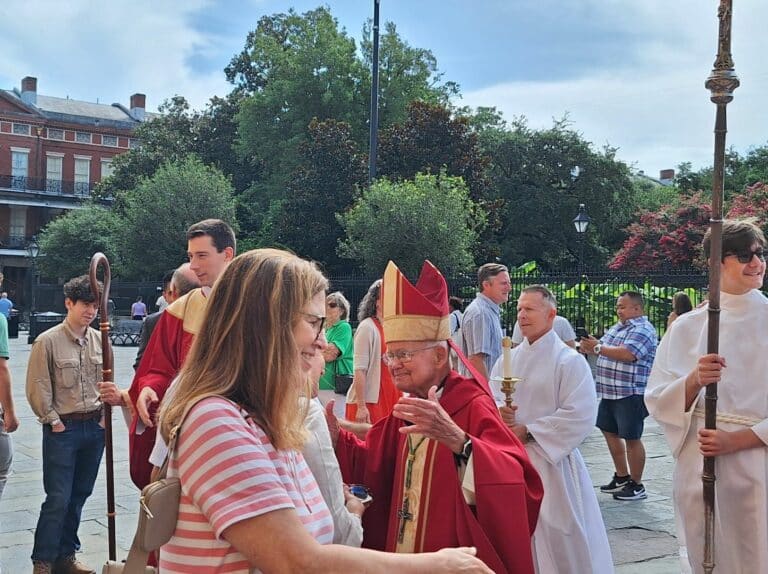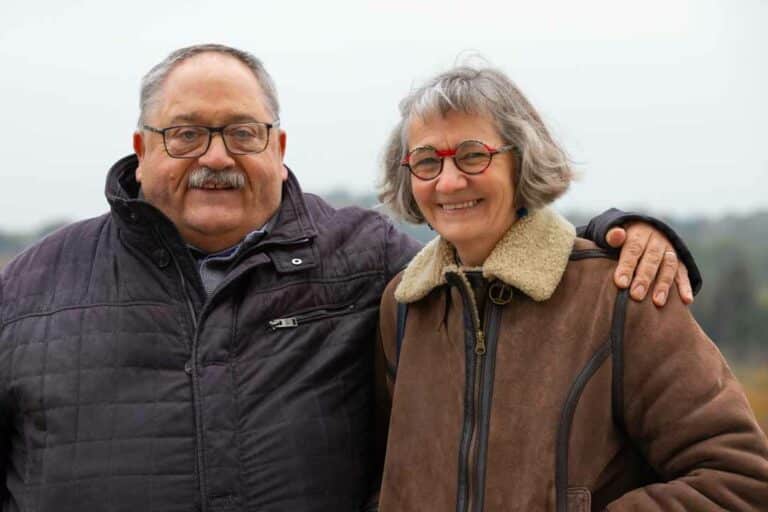Nowadays, in some countries like France, the ritual of the wake, especially at the home of the deceased, seems a morbid practice from the dark ages. Why are wakes ancient history? What is their meaning as far as the Catholic Church is concerned? What is their purpose? Should wakes still occur?
In former times, in France, usage was to wake the dead at their homes, during the days preceding their funerals. Kinfolks, friends, and neighbours, would come to the home and present their condolences to the family, and would take a moment to pay their respect to the deceased. Nowadays, one can only but say that such tradition has almost disappeared from our cultural environment.
In the sixties, a famous French singer, Georges Brassens, was already singing his concern – in his humorous tone, about the decline of such a common practice. “The parents of the dead used to put you in the bath / In good faith, they used to take advantage of friends / There’s a dead man at home, if you feel like it / Come and cry with us at noon…”
Why are wakes ancient history?
Nowadays, one can only but say that such tradition has almost disappeared from our cultural environment. The disappearance of this ritual seems clearly linked to the loss of the meaning of death. Obviously, the disappearing of wakes seems closely related to the loss of the meaning of death. Death has become an absolute taboo. In a modern world that no longer knows how to apprehend it, death is a cruel reminder of one’s finitude. Thus censored, the evidence that one day one will die is concealed. Ultimately, people remain isolated and helpless with their anguish.
What is their meaning as far as the Catholic Church is concerned?
For the Church, whether at home or at the funeral home, the wake is neither a morbid nor over and done with a practice, but a caring act of prayer, faith, hope and love. Keeping a wake, or taking time with the deceased, enables the relations to enter into mourning and fathom the demise.
The soul of our deceased has left the body we keep vigil to. Touching, kissing or seeing it, helps to gently come to terms with the painful reality: the one we care for is no longer there.
What is their purpose?
Furthermore, the wake allows for a private time with our deceased, so as to ask forgiveness or to forgive him under the scrutiny of God.
A time to set one’s eyes on his or her face one last time, to entrust him (her) with one’s thoughts and feelings (regrets, anger, memories, etc.) and a time for prayer to commend him (her) to the Lord. It is an occasion to intercede for our deceased in union with the Virgin Mary, the angels and the saints in Heaven, so that he (she) may enter into the joy of the Kingdom.
Finally, time spent beside the mortal remains of the deceased is a matchless moment to restore faith and hope in the resurrection of the body, and of this special body which we shall see no more here on earth but that we look forward to seeing again in glory.
Rev. Fr. Don Paul Denizot, C.E. Magazine n°382




